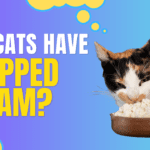Introduction
A cat’s health and well-being depend on its access to clean water. Cats, like humans, need water for a variety of biological processes and activities. While fresh water should always be available for your cat, you may have wondered how long they could survive without it. This article will discuss the causes of water insufficiency in cats, the symptoms of dehydration, how long cats may go without water, and the potential dangers of this situation.

Natural Water Intake for Cats
Drinking habits in cats are distinct and might even vary between individuals. Some felines drink little and often, while others could guzzle gallons at a time. Cats get a lot of the water they need from the food they eat, too. The moisture found in high-quality cat food helps keep cats hydrated. However, unlike wet food, the moisture content of dry cat food is often quite low, therefore it’s crucial that cats always have access to clean water.
Factors Affecting Water Requirements
There are a number of variables that affect how much water a cat needs. Cats’ water requirements change depending on their age and stage of life. Kittens, for example, drink more water because they are more active and consume more food than smaller animals. As their bodies alter with age, older cats may also need more water. The amount of water a cat needs to drink can also be affected by factors such as the cat’s health and the local environment. Some cats, such as those with health problems or those who live in particularly hot and dry climates, may need more water.
Signs of Dehydration in Cats
Knowing the symptoms of dehydration in your cat is important for early detection and prevention of significant health problems. Dry or sticky gums, sunken eyes, loss of skin suppleness, and decreased urine production are all potential signs of dehydration in cats. Lethargy, decreased appetite, and increased panting are all behavioral signs that may point to dehydration. Seek immediate veterinarian care if you observe any of these symptoms.
Duration of Water Deprivation
Several factors affect how long a cat can go without drinking water. When compared to other animals, healthy cats have a higher tolerance for temporary water restriction. However, remember that water is necessary for their basic functioning, and that depriving them of water for an extended period of time might have dire repercussions. If a cat doesn’t drink enough water or acquire enough moisture from its food, it can become dehydrated in a matter of hours. That’s why it’s so important to always give them clean water to drink.
Risks and Consequences of Water Deprivation
Negative impacts on a cat’s health and well-being might result from prolonged dehydration. In order to digest food, absorb nutrients, and eliminate waste, cats need water. Several health problems can develop when people don’t drink enough water.
Kidney and urinary issues are a major danger zone for those who don’t get enough water. Cats with insufficient water intake are at increased risk for renal disease, bladder stones, and urinary tract infections. Crystal formation in the urinary tract may be exacerbated by dehydration, which causes urine to become more concentrated. These crystals are extremely painful, and they can also impede urine flow, which can be fatal.
In addition, a cat’s digestive system can suffer from dehydration. Constipation, caused by a lack of fluids, can slow or stop bowel movements. This can cause pain, straining, and other issues like megacolon, a condition in which the colon swells and loses its capacity to contract normally.
A cat’s vitality, attentiveness, and energy can all be negatively impacted by dehydration in addition to the aforementioned physical effects. Cats may become listless, uninterested in their usual activities, and less hungry. Their immune system might be weakened by lack of water, making them more susceptible to sickness.
Providing Adequate Water for Cats
Your cat needs easy access to clean water at all times if you want to keep it healthy and hydrated. A few suggestions to have you drinking more water:
- Location: Put bowls of water in strategic locations throughout the house. Multiple water sources may be more convenient for cats.
- Cleanliness: Water bowls should be cleaned and refilled frequently to keep the water clean and inviting. Because of their acute sense of smell and taste, cats benefit greatly from eating out of clean, odor-free bowls.
- Water Bowl Type: Different cats have different preferences when it comes to dish depth. Find out which bowl your cat likes best by trying out a few different kinds.
- Water Quality: If you want to make sure your cat drinks plenty of water, you should only give it water that has been filtered or cleaned to remove any chemicals or other impurities.
- Wet Food: Feed your cat some canned food. Wet food is more hydrating since it contains more water than dry food.
- Water Alternatives: It’s possible that certain felines like drinking from fountains or running water. Pet water fountains are one option for encouraging your pet to drink more water.
Monitoring Your Cat’s Hydration
As a caring pet owner, you must keep an eye on your cat’s fluid intake and output. Watch for any changes in the frequency and amount of alcohol they consume. Cats are accustomed to drinking tiny amounts of water frequently, so a sudden reduction in this behavior could be concerning.
The suppleness of the skin is another indicator of how well hydrated the body is. Carefully separate the skin on your cat’s neck and/or between its shoulder blades. The skin of a healthy, hydrated cat will immediately retract. Dehydration may be present if the skin returns slowly or remains tent-like.
It is crucial to go to a professional if you think your cat is dehydrated or if you observe any worrying symptoms. They’ll check up on your cat, treat him if he’s sick, and give you pointers on how to keep him hydrated.
Conclusion
In sum, feline well-being depends on access to clean water. Water is essential for their survival, health, and well-being. Cats can survive without water for shorter periods of time than many other animals, but they still require a steady supply of clean water at all times. Dehydration in cats can lead to serious health concerns such kidney and urinary disorders, digestive problems, and a general decline in health.
There are measures we can take as responsible cat owners to guarantee our feline friends get enough water. We can improve their health by learning their typical patterns of water consumption, providing them with easy access to fresh water, encouraging the consumption of moist food, and keeping tabs on their hydration levels.
Keep an eye out for deviations in drinking patterns, bodily symptoms, and unusual behavior as potential indicators of dehydration. Consult a veterinarian for assessment and help if you have concerns about your cat’s hydration or if you observe any unusual indicators.
We can help our cats live longer, happier lives if we give them enough of fresh water to drink.
FAQs
- Can a cat go without water for an extended period of time?
Cats don’t fare well in the absence of water. They can’t go as long without water as other animals can. - How can you tell if your cat is dehydrated?
Dry or sticky gums, sunken eyes, skin that has lost its suppleness, decreased urine production, lethargy, decreased appetite, and increased panting are all symptoms of dehydration in cats. - How often should I give my cat a new bowl of water?
If you want to keep your cat healthy and happy, you should replace its water every day. Fill the bowl with clean water, then rinse it off with hot water. - Does wet cat food provide enough water for a cat?
Even while wet cat food contains more water than dry, it still could not be enough for some cats. In addition to wet food, fresh water should be provided. - If my cat doesn’t drink a lot of water, should I be worried?
If your cat suddenly stops showing any interest in water, you should check their water intake and see a vet. A decrease in water consumption may indicate an underlying health problem. - Can I flavor my cat’s water to make it more enticing to drink?
Flavoring your cat’s water is not advised due to the potential dangers of some additions. Putting fresh, clean water in visually appealing bowls in convenient locations is typically enough to get people to drink it. - Tips for getting your feline friend to hydrate regularly!
Getting your cat to drink more water can be done in a number of different ways. Make sure there are plenty of clean water bowls scattered throughout the house for them to use. The movement and sound of water, such as that produced by a water fountain, might be enticing to cats. Some cats like drinking out of shallow dishes or cups with wide bases. They can get more water by eating wet food, which also improves their diet overall. - Is it typical for senior cats to cut back on their water intake?
Cats’ water consumption tends to decrease slightly with age. However, make sure they have easy access to plenty of clean water and keep a close eye on how much they drink. Dehydration and other symptoms of decreased water consumption need a trip to the vet to rule out more serious conditions. - Can cats get enough fluids from other foods and drinks, including milk and juice?
Milk or juice is not a suitable alternative to water for cats. Despite their water content, some of these drinks are toxic to cats because they include sugar, lactose, or other ingredients. Only fresh water should be provided as a means of hydration. - If I think my cat is dehydrated, what should I do?
Seek veterinary attention if you think your cat is dehydrated. A lack of water in the body can be a precursor to other health problems or even a life-threatening situation. Your vet will be able to diagnose the reason of your cat’s dehydration and recommend the best course of therapy.
Remember, if you have any concerns about your cat’s hydration or overall health, it is always best to seek advice from a veterinarian. They can provide specific guidance based on your cat’s individual needs and help ensure their well-being.
Disclaimer:
At TheCatCare.org, we take great care to ensure that the information we provide is accurate, up-to-date, and reliable. However, it’s important to note that we are not medical advisors or licensed veterinarians, and the information we provide should not be considered a substitute for professional advice.

Franky Watson is a certified pet care specialist with over 10 years of experience working with animals of all kinds. He has a degree in veterinary science and is passionate about educating pet owners on how to provide the best possible care for their furry friends. In addition to writing articles on pet care topics, Franky Watson also volunteers at local animal shelters and fosters animals in need. When he’s not caring for animals, he enjoys hiking and spending time with her own pets, including two cats.





